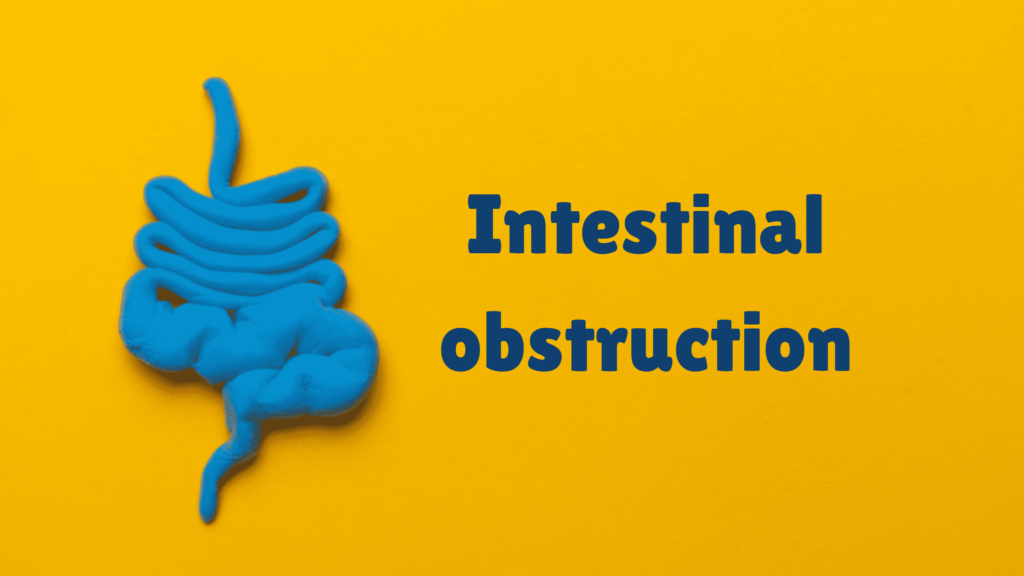🚫 Intestinal Obstruction
Intestinal obstruction means there is a blockage in the intestines that stops food, fluids, and gas from passing through normally.
🧩 What Happens?
- The blockage can be partial or complete.
- It prevents the normal movement of contents through the digestive tract.
- This causes buildup of food, fluid, and gas above the blockage.
🔍 Where Can It Occur?
- Small intestine (more common)
- Large intestine (colon)
🧠 Types of Intestinal Obstruction
- Mechanical obstruction – caused by a physical blockage:
- Adhesions (scar tissue from previous surgery)
- Hernias (intestine trapped in a weak spot in abdominal wall)
- Tumors
- Intussusception (one part of intestine slides into another)
- Volvulus (twisting of the intestine)
- Foreign bodies or impacted stool
- Functional obstruction (Ileus) – when the intestines don’t move properly but no physical blockage exists, often after surgery or illness.
⚠️ Symptoms
- Severe abdominal pain and cramping
- Vomiting
- Abdominal swelling (distension)
- Constipation or inability to pass gas
- Nausea
🩺 Diagnosis
- Physical exam (tender, distended abdomen)
- X-rays or CT scans to locate and determine the cause of blockage
- Blood tests to check for dehydration or infection
🚑 Treatment
- Hospital admission
- IV fluids to prevent dehydration
- Nasogastric tube (a tube through the nose into the stomach) to remove stomach contents and relieve pressure
- Surgery if the blockage does not resolve or if caused by tumors, hernias, or strangulation
⚠️ Complications if Untreated
- Bowel tissue death (necrosis)
- Perforation (hole in intestine)
- Infection (peritonitis)
- Life-threatening emergency
